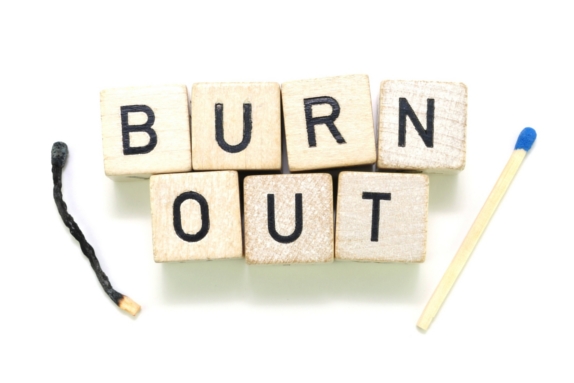Burnout: Senioritis or Something More?

February 4, 2019
Likely you’ve seen articles floating around that pose a multitude of questions. What is burnout? What causes burnout? Are millenials the burnout generation?
In the video that inspired this article, “What is Burnout?” by the popular Youtube channel vlogbrothers, Hank Green describes burnout as being in a car that doesn’t have any fuel left – it wants to go, but it can’t make itself move forward.
The catalyst article for this problem comes from Buzzfeed News, titled “How Millennials Became The Burnout Generation,” by Anne Helen Petersen. She discusses how burnout affected her life, despite the fact she didn’t know she was experiencing it. While she was doing important things, like “publishing stories, writing two books, making meals, executing a move across the country,” she was putting off doing more mundane things like responding to personal emails, doing chores, making appointments, and running boring errands. It wasn’t just that she didn’t want to do these things; in fact, she became obsessed with the guilt that came with not doing these simple tasks.
Petersen posits many theories for how burnout occurs, and specifically how it has come to pass that millenials deal with it most. She, as an “older millennial” dealt with the bursting of the dot-com bubble in the 2001, just as she and her peers were entering college or the workforce. Then, just as many of them moved from graduate school back into the workforce, hoping that their new degrees would give them more security and pride, the 2008 financial crisis occurred, jolting their expectations. Because of these economic factors (paired with mounting student debt), millennials adopted an attitude of all work and no play. Or if there was play, it was work in disguise.
Petersen lists the new Netflix show “Tidying Up with Marie Kondo” as an example. Relaxing by watching other people do chores might not be as relaxing as it feels; it could be more guilt-inducing. Social media feeds also contribute, maybe most so the ‘minimalist’ aesthetic Instagram users so often strive to portray.
So, if millennials are the burnout generation, what does that make Gen Z? What does that make Coronado students? Are we similarly overworked, and before we graduate high school?
The answer might be held by some of Coronado’s most motivated – and therefore most burned out – students. Many people at Coronado take challenging classes and hold down a job, but what kind of impact does that have on their mental health?
Jaiden Twining, 12, says he’s taking many advanced classes. He is in AP Physics, Calculus, 5th year Spanish, CU English, show choir, and chamber choir. Outside of school, he is a Blue Note and attends Film Club almost every week. “I definitely spend a lot of time on homework – too long to where it does cut into my sleep.” When he doesn’t get enough sleep, he says “that definitely messes with me.”
(When I asked if he ever feels like the class load and clubs become too much, nearby classmate Elena Dunz interjected a resounding yes). Jaiden felt more like it was the price he had to pay for taking such advanced classes, but he did admit that he can sometimes get behind. “I already procrastinate a bit, but now instead of getting them done before the deadline, I get them done just after the deadline.”
(Then, when I asked if he was dealing with senioritis, Elena Dunz again responded in the positive in relation to herself). Jaiden Twining said he wasn’t, not in the traditional sense at least. “I was first semester, but not a lot now, actually. I think I still worry too much about class assignments. I tell myself it’s okay to get a B, and then I spend too much time trying to get an A. It’s not worth it, honestly,” he said, recognizing his struggle with perfectionism.
For those of you who can empathize with Jaiden’s struggle right now, remember that if your senioritis is compounding the problem, you only have a few more months.
But this isn’t one of those problems that’s just going to go away. Burnout is a millennial problem, and it’s a Gen Z problem. More than likely, you or someone you know has dealt with it in extreme ways: not getting enough sleep, working until illness sets in, finding yourself asking how many breakdowns in a month is too many, or working all day at school and then getting home and sleeping instead of doing homework because you just can’t do anything else.
I feel guilty for not having a solution for this problem; maybe that’s my Gen Z perfectionist guilt. All I can say is that if you’re dealing with burnout, you’re not the only one.

